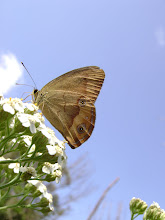Respect of all living things, and beyond, to the very air they breath, the water and land they live upon and the ecological contexts : all these things are best tended to , at an early age. However, therein lies an issue or two.
Firstly, if the very mechanisms that are instruments for education (parent, family and teacher groups, community and government) uphold social patterns that contradict sustainable, natural stewardship issues, then the dichotomy could, in time, become rather apparent to the youth and earlier childhood group. The teacher, perhaps not even able to pass on truly sustainable living knowledge.
Secondly, should the task of responsible enviromental educational systems actually be put into place, what of the vast array of non sustainable economic practices that should gradually be percieved as just that : vastly unsustainable. This is not a very pallatable outcome for an educational policy maker.
Yet, should a system be honestly put into place to, as a national educational objective, promoting love of the land, nature, respect, and continuity of sound ecological practices, then the skills to transform a nation can be created via youth who at least understand how to help nature balance itself.
At a practical local level, and within the regional context, strongly integrated land stewardship practices are best practiced and passed on at early childhood development stages. This integration of respect for the land, is far from happening in mainstream society. The way of the market, the economy, the "world" is so strongly about lack of respect. Society functions with many blind spots to consequences of their actions.
Regarding policy and directives for early education Australia wide ?
This is where the practical land stewardship framework begins - it is built here and travels beyond, into future adulthood and social practices.......
How does the current land stewardship "adult" faction rate, at the time of writing (April 2009)? I suspect not very well... there is much need for improvement here, regarding the process of land stewardship education.








No comments:
Post a Comment